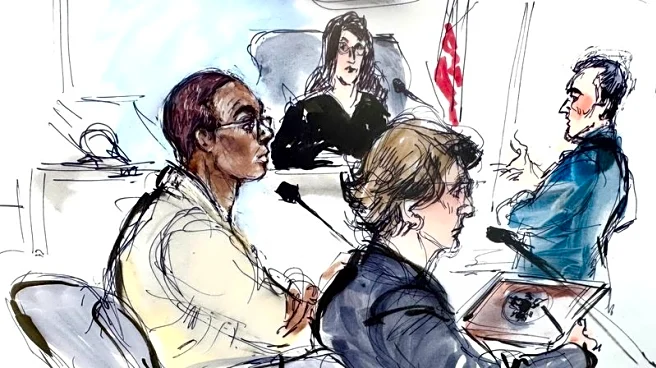What's Happening?
Arc Raiders, a game within the extraction genre, has introduced a permanent upgrade feature that allows players to earn XP for simple upgrades. However, the game's Mobility skill tree has been criticized
for its vague and misleading descriptions, leading players to invest in skills that do not perform as expected. Skills such as Hero Leap, Calming Stroll, Slip & Slide, Effortless Roll, and Sturdy Ankles have been found to offer minimal benefits and diminishing returns, contrary to their descriptions. Players are advised to focus on early skills like Marathon Runner and Youthful Lungs, which provide more substantial benefits, and to consider investing in the Survival tree for more impactful upgrades.
Why It's Important?
The critique of Arc Raiders' Mobility skills highlights the importance of clear and accurate skill descriptions in gaming. Misleading descriptions can lead to player frustration and wasted resources, impacting the overall gaming experience. This issue underscores the need for developers to ensure transparency and effectiveness in game mechanics, which can affect player retention and satisfaction. As players seek value in their gaming investments, the effectiveness of skill trees can influence the game's popularity and success in the competitive gaming market.
What's Next?
Players may begin to shift their focus from the Mobility skill tree to other areas such as the Survival tree, which offers more reliable upgrades. Developers might need to address these concerns by updating skill descriptions or improving the functionality of the criticized skills. This could involve patch updates or community engagement to gather feedback and make necessary adjustments. The game's future updates may include more detailed descriptions and improved skill performance to enhance player experience.
Beyond the Headlines
The situation with Arc Raiders' Mobility skills may prompt discussions about ethical game design practices, particularly regarding transparency and player trust. Developers might face pressure to ensure that game mechanics are not only engaging but also fair and accurately represented. This could lead to broader industry standards for skill descriptions and performance metrics, influencing how games are developed and marketed.










